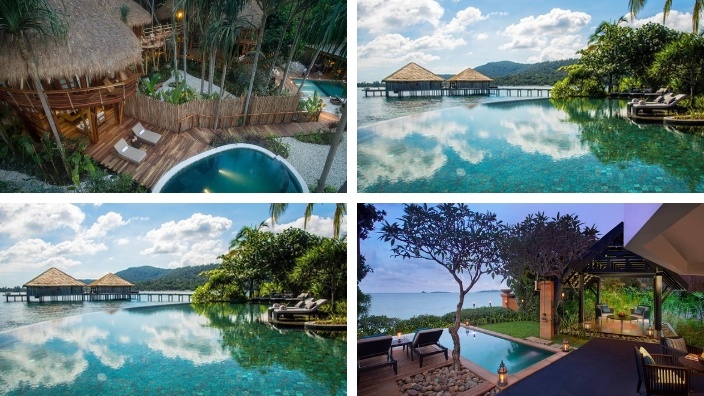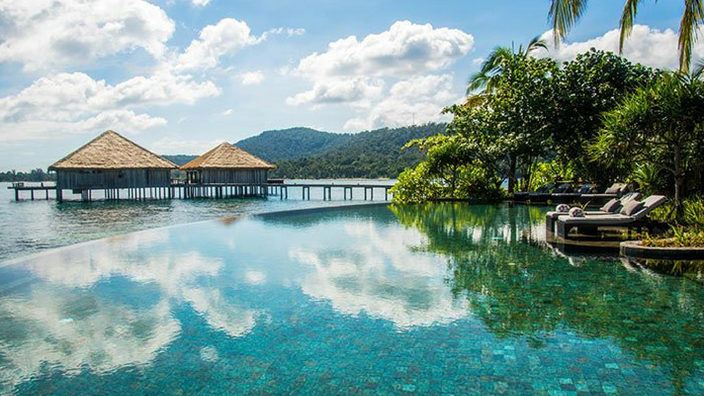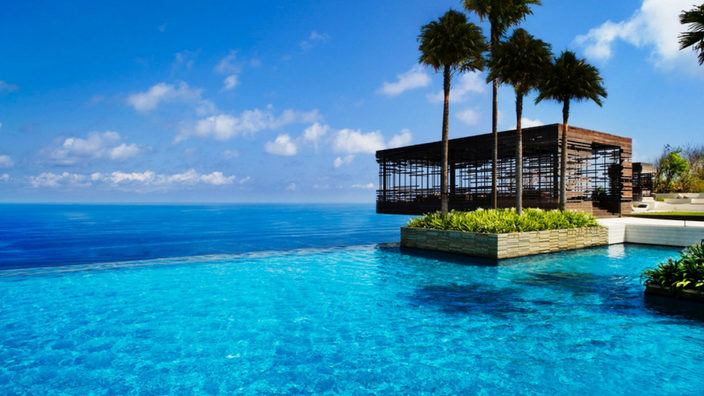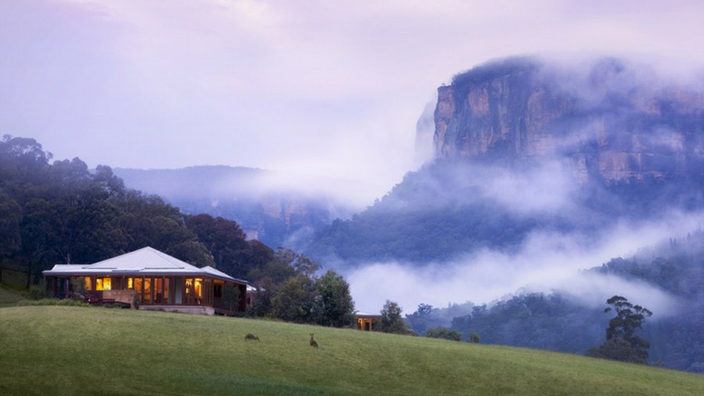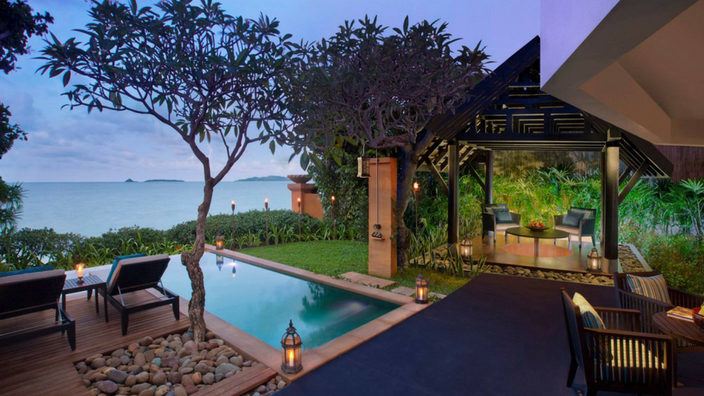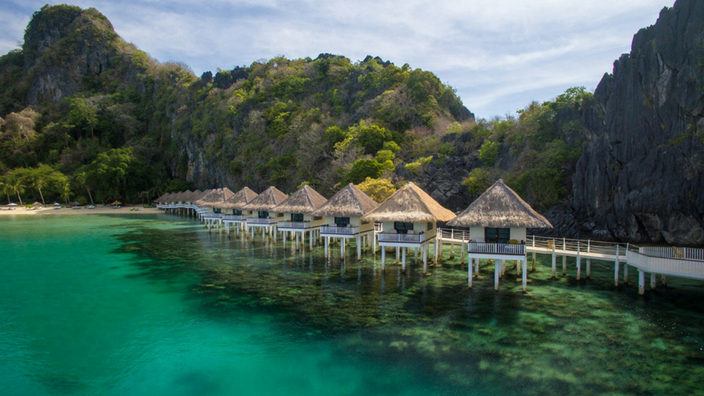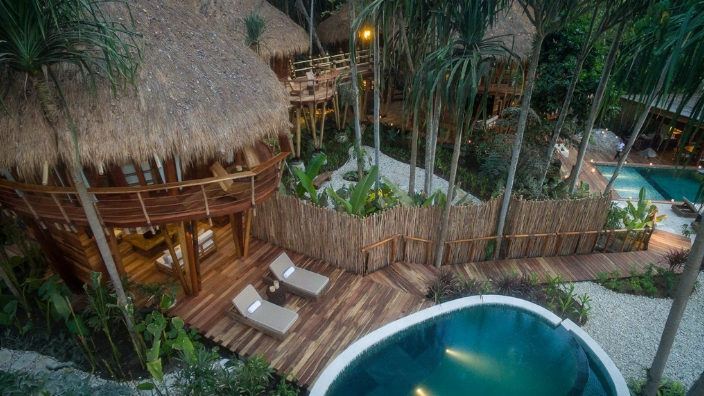Let’s face it, tourism is tough on the planet. The travel sector accounts for around eight percent of global carbon emissions – and with the rise of so-called low cost airlines, city-sized cruise ships, and mega-hotels – the situation is predicted to get much worse.
But already there is the beginning of a backlash against the vagaries of mass tourism, with a new breed of traveller looking for more sustainable options, that offer a chance not only to get away, but to give back.
In a bid to court this new more ethical tourist, high end hotels in Asia are increasingly attempting to improve their social impact and reduce their environmental footprint. Here we give you the rundown of where to go if you’re seeking luxury with a conscience.
An Entirely Ethical Enterprise: Song Saa Private Island, Cambodia
The islands of Koh Ouen and Koh Bong off Cambodia’s southern coast, were once so dirty and polluted they were barely habitable and the waters overfished. Today, they are pristine, while seas surrounding them are part of the country’s first marine reserve.
A long way off South East Asia’s now well beaten path, Song Saa, with its idyllic beaches, patches of forest, glistening lagoon, and an over-sea footbridge that makes your soul sing, is a holiday destination with a difference.
The message from owners Ray and Melita Hunter is ‘luxury that treads lightly’: The 27 villas – spread across three enclaves – jungle, beach and over-water – are made using mainly locally sourced and reclaimed materials including driftwood and scrap metal from old boats. Much of the food served is locally and sustainably sourced and the majority of staff are Cambodian.
The Hunters have set up a charitable foundation which funds a raft of initiatives to help the local community from farming projects and pioneering waste management systems to creating a school, and annual health scheme which brings as much as USD 1 million in medical supplies to the region along with 40 US based doctors every year to help treat villagers who may ordinarily struggle to access basic care.
Zero Waste Living: Alila Villas Bali, Indonesia
Alila Resorts, owned by Two Roads Hospitality Asia, has a company-wide no plastic policy and is working to a zero waste to landfill arrangement across four hotels in Bali, where overflowing garbage littering beaches, rivers, and the ocean has dominated headlines in recent years.
At idyllic Alila Ubud every guest is given a reusable bamboo straw at the start of their stay, replacing the need for any plastic ones inside or outside of the hotel. They also run forest clean-ups in a bid to protect local fauna and flora.
Alila Villas Uluwatu, often hailed as one of the most ‘Insta-worthy’ spots in the whole of Bali, has set up its own water purification system, enabling guests to ditch the single use plastic bottles and opt for water that’s been filtered on site and stored in glass containers instead.
Alila Manggis regularly collaborates with a local scuba centre to run the ‘Dive Against Debris’ scheme. This sees guests join trained divers to remove rubbish in the water such as plastic bottles and bags.
Alila also run community projects, where individual resorts work with dedicated local charities, and are designed to EarthCheck standards, ensuring a sustainable approach how the resorts are built and run.
Carbon Neutral Kings: Emirates One&Only Wolgan Valley, Australia
Nestled between two national parks and set in a 7,000 acre reserve in the Greater Blue Mountains area, the One & Only Wolgan Valley boasts not only of being Australia’s first luxury conservation-based resort but also the first carbon neutral resort in the world to be certified through an internationally accredited programme.
Travellers come for the dramatic scenery, breathtaking hikes and horseback riding routes, where wild river meets striking cliffs but also for the chance to stay in a place that was thoughtfully created to make only the slightest of imprints on the land around it. The resort occupies just one percent of the reserve and was built in part using recycled building materials already present in the area. There are facilities to collect rainwater for use in the hotel, solar panels to help with energy use, and programmes to protect regional biodiversity including a project with the University of Western Sydney to help preserve wombat populations.
Leaders in Local Sourcing: Anantara, Koh Samui, Thailand
Across Thailand, Anantara Hotels are tapping into the nation’s renewed interest in locally sourced produce. Their flagship residence, Anantara Riverside Bangkok even has its own hydroponic rooftop farm growing everything from chillies and tomatoes, to squash and herbs.
Anantara Bohput Koh Samui is a gourmand’s dream. Executive chef David Eldridge makes great use of the abundant resources available on the the island, and across the province of Surat Thani, to craft dishes that are the perfect mix of tradition and innovation.
The menu at the resort’s Thai restaurant, Eclipse, is almost entirely made up of Thai produce, and where possible – local goods. The hotel makes full use of Samui’s reputation as ‘coconut island’ with curries, jams, drinks and sweets. Even the spa has joined in – with many treatments utilising coconut oils and husks.
Eldridge says he and the team are working with local suppliers to show them how to meet the standards and expectations of an international diners, which in turn helps community businesses expand their client base.
The hotel has its own vegetable garden which also houses a collection of beehives, with the honey collected used in showcase dishes. They run hugely popular cooking classes, encouraging guests to get to know Thai ingredients and the value of local sourcing.
Eco-Adventure Pick’n’Mix: El Nido Resorts, Palawan, Philippines
El Nido Resorts offer four different havens, each geared to a different type of luxury holiday, but all offering the same thoughtful approach to travel and tourism. Apulit Island, hailed as the one for thrill-seekers, offers the chance to scale cliffs, dive, and trek, while Miniloc Island (being refurbished until December 2018) is for the young at heart. Lagen Island serves as a sanctuary for indigenous birds and animals and an array of exceptional hiking trails. Arguably the most luxurious of the four is Pangulasian Island, which is set next to a marine sanctuary, and boasts picture perfect white sand beaches and sunsets.
All four offer sustainable menus, and focus on activities that have little impact on the local environment – there are no jet skis or motorboats and guides ensure that guests are educated on how to best interact with the local environment. They have a state-of-the-art sewage plant which ensures no waste water ends up back in the sea, on-site composting, as well as devices to harvest rainwater and solar energy. They regularly run coastal clean-ups, which guests are encouraged to join.
Caring for the Community: Nihi Sumba
Nihi Sumba has become a favourite with the rich and famous – The Beckhams recently holidayed there. And while it would be easy to focus on the remarkable location, stunning sunsets, and unbridled activities, the place also offers incredible opportunities to engage with the local community.
Sumba is one of the poorest places in the Indonesian archipelago, and most of its population lives below the poverty line. The resort is now the largest employer on the island, with most of the staff made up of local tribespeople (often proudly wearing traditional dress). A portion of the profits are given to NGO The Sumba Foundation, which provides aid to nearby villages and tribes, which covers the charities costs and ensures 100% of donations go to funding good works.
Success stories so far include the launch of a malaria prevention scheme that has seen infection rates drop by around 85% in the 400 villages nearby, the creation of several schools ensuring children have a local option to learn, plus five new health centres and scores of wells to provide access to clean water.
Nihi Sumba, repeatedly voted the world’s best by leading travel magazines, has its own organic garden, and composting and water recycling systems. There is a turtle hatchery, where the eggs of Olive Ridleys – an endangered species – are kept safe until they are ready to head to the sea. Locals are encouraged to bring the eggs to the resort, rather than sell them, and guests are able to help release the baby turtles on the shores of the Indian Ocean.
Read our review of Nihi Sumba here.
For more musings on travel, food, and parenting from LTThomas visit www.mylittleshopoftreasures.
This post contains affiliate links, if you act on an affiliate link we will receive a small commission at no cost to you. Thank you for supporting the HK HUB!
Find more beach getaway inspiration in this post!


